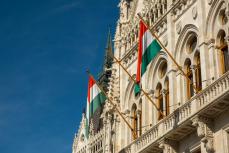Blog • Published on:December 13, 2024 | Updated on:December 17, 2024 • 7 Min
Richest Country in Africa: Top African Nations By Wealth
Africa, a continent rich in natural resources, cultural diversity, and economic potential, is home to some of the fastest-growing economies in the world. Identifying the richest country in Africa involves analyzing various economic metrics. This guide provides an in-depth look at Africa's wealthiest nations, their economic drivers, and investment opportunities.
Understanding Wealth Metrics in African Nations
Wealth in African countries is assessed through several key metrics:
- Gross Domestic Product (GDP): Represents the total economic output of a nation.
- GDP Per Capita: Indicates the average economic output per person, providing a sense of individual wealth.
- Private Wealth: The total assets held by individuals, excluding government funds.
Other metrics like the Human Development Index (HDI), economic diversification, and foreign direct investment (FDI) also provide crucial insights. Together, these indicators help determine not only the economic health but also the living standards within a country. These metrics are often complemented by sectoral analysis, infrastructure development, and trends in digital transformation to capture the full economic picture.
The Evolution of African Economies
Historically, African economies have been heavily reliant on natural resources such as oil, gold, and diamonds. However, globalization and increased trade partnerships have diversified the continent’s economic landscape. Countries like Kenya and Nigeria have embraced technology and innovation, while others such as Rwanda and Ethiopia are leveraging their agricultural potential and industrial growth to drive progress.
Economic inequality remains a challenge, with wealth often concentrated in urban centers while rural areas struggle with limited access to resources. This disparity underscores the need for inclusive policies that ensure equitable growth.
Top 10 Wealthiest African Countries in 2024
Africa's wealth rankings highlight countries leading in economic output and individual wealth. Here are the top 10 wealthiest nations:
South Africa - #1
- GDP: $400 billion
- Private Wealth: $700 billion
- Known for its diversified economy and wealth concentration.
Egypt - #2
- GDP: $404 billion
- Private Wealth: $400 billion
- A hub for tourism, manufacturing, and natural gas exports.
Nigeria - #3
- GDP: $500 billion
- Private Wealth: $240 billion
- Africa's largest economy by GDP, driven by oil and tech sectors.
Morocco - #4
- GDP: $140 billion
- Private Wealth: $130 billion
- Leader in renewable energy and industrial development.
Algeria - #5
- GDP: $190 billion
- Private Wealth: $110 billion
- Strongly reliant on oil and gas exports.
Kenya - #6
- GDP: $110 billion
- Private Wealth: $100 billion
- Known for its fintech and agricultural innovation.
Ethiopia - #7
- GDP: $126 billion
- Private Wealth: $60 billion
- Focused on textile and infrastructure development.
Ghana - #8
- GDP: $70 billion
- Private Wealth: $50 billion
- A major exporter of gold and cocoa.
Rwanda - #9
- GDP: $14 billion
- Private Wealth: $45 billion
- Recognized for its stability and smart city initiatives.
Tanzania - #10
- GDP: $67 billion
- Private Wealth: $40 billion
- Growing in tourism and renewable energy.
Each of these nations demonstrates a unique economic profile shaped by historical factors, resource endowments, and policy initiatives. For instance, South Africa leads in private wealth due to its mature financial markets, while Nigeria dominates GDP rankings thanks to its large oil reserves and burgeoning tech ecosystem. Additionally, countries like Morocco are advancing their economies by investing in renewable energy and trade infrastructure.
South Africa: Africa's Leading Wealth Hub
South Africa remains Africa’s wealthiest country in terms of private wealth. Key sectors include:
- Mining: A global leader in gold, platinum, and diamond production.
- Finance: Home to Africa’s largest stock exchange, the Johannesburg Stock Exchange (JSE).
- Tourism: Attracting millions annually with natural landmarks like Kruger National Park and Table Mountain.
Historical Context
South Africa’s economy has undergone significant changes since the apartheid era. Post-apartheid policies focused on economic inclusivity and growth, although challenges like inequality and unemployment persist. The mining sector, once the backbone of the economy, has been complemented by advancements in manufacturing, technology, and financial services.
Investment Opportunities in South Africa
- Real Estate: Luxury properties in Cape Town and Johannesburg.
- Renewable Energy: Expanding wind and solar projects.
- Tech and Innovation: A growing hub for startups, particularly in fintech.
South Africa is also making strides in green energy, with initiatives aimed at reducing carbon emissions and increasing renewable energy reliance. Furthermore, government policies favoring foreign investment in infrastructure and technology make it a preferred destination for global investors.
Fastest Growing African Economies
Africa’s economic growth is spearheaded by nations making significant strides:
Ethiopia - #1
- Growth Rate: 7.5%
- Focus on industrial parks and energy infrastructure.
Rwanda - #2
- Growth Rate: 6.8%
- Investments in ICT and eco-tourism.
Kenya - #3
- Growth Rate: 6.1%
- Leadership in fintech and agricultural tech.
Ghana - #4
- Growth Rate: 5.9%
- Expansion in gold mining and agribusiness.
Uganda - #5
- Growth Rate: 5.6%
- Infrastructure development and oil production.
Why These Economies Are Growing
- Diversification beyond natural resources.
- Strategic investments in technology and infrastructure.
- Supportive policies attracting foreign direct investment (FDI).
Ethiopia and Rwanda, for instance, have prioritized industrial development and ICT integration. Their focus on creating investment-friendly environments has yielded impressive growth rates that outpace many global averages. Additionally, Kenya’s leadership in mobile payments through innovations like M-Pesa has positioned it as a leader in financial technology.
Investment Opportunities in Africa's Richest Nations
Africa offers lucrative investment opportunities in:
Real Estate Markets
- South Africa: Luxury and commercial properties in urban centers.
- Morocco: Tourism-driven real estate in Marrakech.
- Egypt: Affordable housing and commercial spaces in Cairo.
Business Sectors
- Renewable Energy: Solar, wind, and geothermal projects.
- Agriculture: Export-focused farming and agritech innovations.
- Technology: Startups in fintech, health tech, and AI.
Residence by Investment Programs
Countries like South Africa and Morocco offer attractive pathways for investors to gain residency through economic contributions. Investors in Morocco can benefit from its proximity to Europe, while South Africa's programs provide access to a thriving local market. Programs such as these not only boost local economies but also provide investors with strategic advantages, including market access and citizenship benefits.
How to Access African Markets Through Investment
Investment Migration Options
- Morocco: Investment thresholds starting at $200,000.
- Egypt: Residence by purchasing property worth $250,000.
Business Establishment
- Nigeria: Policies supporting startups in tech and finance.
- Kenya: Government incentives for foreign investors.
Savory & Partners Services
As a trusted advisor, Savory & Partners provides guidance on:
- Identifying lucrative investment opportunities.
- Navigating residence and citizenship programs.
- Setting up businesses in Africa’s leading economies.
Savory & Partners also offers tailored advice for high-net-worth individuals seeking to maximize their investments across Africa’s diverse markets. By leveraging their expertise, investors can ensure compliance, optimize returns, and gain access to exclusive opportunities.
Future Outlook: Africa's Economic Powerhouses
Africa’s economic future is promising, with growth driven by:
Growth Predictions
- Ethiopia: Expected to sustain a growth rate of 7% annually.
- Rwanda: Projected to become a regional tech hub.
- Egypt: Strengthening its role in global trade via the Suez Canal.
Emerging Markets
- Ghana: Rising as a leader in renewable energy.
- Tanzania: Expanding its tourism and agriculture sectors.
Investment Trends
- Increased focus on green energy projects.
- Expansion of tech ecosystems in urban centers.
- Growth in Africa-focused private equity funds.
Africa’s growing middle class and improving infrastructure are setting the stage for sustained economic growth. Investors can capitalize on these trends by aligning with sectors poised for expansion, such as technology and sustainable energy. Regional trade agreements like the African Continental Free Trade Area (AfCFTA) are also expected to boost intra-continental trade and economic integration.
A Vision for Africa’s Prosperity
Africa stands at the cusp of an economic renaissance, driven by innovation, resilience, and strategic investments. The continent’s wealthiest nations are setting the pace for growth, showcasing the potential of diversified economies and forward-thinking policies. As globalization continues to integrate African markets into the global economy, the region’s opportunities for investment and development are boundless.
Harnessing this momentum requires collaborative efforts from governments, businesses, and investors. With the right partnerships, Africa’s economic trajectory will not only uplift its nations but also reshape the global economic landscape. The future of Africa is bright, offering a wealth of opportunities for those ready to take part in its journey of transformation.
References
BBC News. (2024). Africa’s Economic Outlook. Retrieved from https://www.bbc.com/news/world/africa
International Monetary Fund. (2024). World Economic Outlook: Africa. Retrieved from https://www.imf.org/en/Publications/WEO
World Bank. (2024). Africa’s Pulse Report. Retrieved from https://www.worldbank.org/en/region/afr/publication/africas-pulse
United Nations Development Programme. (2024). Human Development Report: Africa. Retrieved from https://www.undp.org/publications/human-development-report
Written By

Laura Weber
Laura Weber is a legal expert in international tax planning and citizenship by investment. With over a decade of experience, Laura helps individuals and families navigate complex legal frameworks to secure dual citizenship and global residency options, particularly in the Caribbean and Europe.
Related Articles









Recently Published









Book a free consultation


